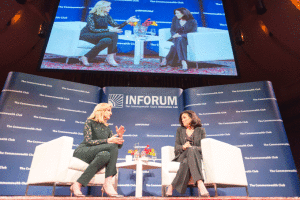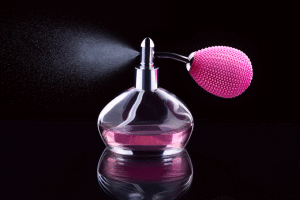I love going to the ballpark. I love watching the guys take batting practice before the game. I love the crack of the bat when it makes perfect contact with the ball. I love the collective roar of the crowd when the ball sails over the fence or a fielder makes a diving catch. I love sitting in the sun, drinking a cold beer and witnessing the ebb and flow of baseball.
What I don’t love are the times when, because I’m a woman, my fandom is treated like a trite passing interest. I don’t just pretend to like the game because of a boyfriend. I don’t watch baseball because I think Derek Jeter is cute or that Mike Trout has a nice butt. And I most certainly don’t wear a pink baseball hat.
Yet even with all the women out there at the ballpark—or watching football with friends at a local bar, or painstakingly pouring over their brackets during March Madness—patronizing attitudes still exist.
Inevitably, at the beginning of the baseball season or right before the Super Bowl, someone (a man) somewhere (an out-of-touch sports network) will publish a piece about how to watch baseball with your guy or a football guide for dummies—er, I mean women. It’s as if it were the 1950s.
A couple of years ago, CBS Sports introduced an app called Baseball Boyfriend where for a meager $2.99, women could pick a player to be their boyfriend for the season and then “dump him if he didn’t perform.” (Their words, not mine.) CBS Sports claimed the app was designed as “a mini game for those who love baseball.” Uh, huh. Needless to say it whiffed badly.
Even with all the women out there at the ballpark—or watching football at a local bar—patronizing attitudes still exist.
Sports news organizations have traditionally struggled to embrace women as equals both as fans and as analysts. Just two years ago, ESPN got into a bit of hot water for giving viewers the option to specifically complain about women announcers. Visitors to their website could actually select “commentator—dislike female commentators” from a drop-down menu when providing feedback about coverage. You know, because gender affects your ability to present analysis or conduct an on-field interview.
After getting outed on Twitter, ESPN removed the option. A spokesperson said it was a “relic” from 10 years prior (that would have been about 2002) when the network first began assigning female play-by-play announcers to cover college football games. That ESPN thought it was okay to include gender as a viable option for announcer-related complaints a mere decade ago demonstrates how out-of-touch at least the decision makers can be when it comes to women and sports.
All the sports industry needs to do is look at the numbers to see what an important role female fans play. More women than ever watch sports of all kinds. Women make up 55 percent of the NFL’s fan base, 46 percent of MLB’s fan base and 36 percent of the NHL’s. Those numbers are expected to continue growing. Many women come to embrace sports much the same way many men do: watching with their dads.
I learned about baseball, and sports in general from my dad. We watched baseball (the Yankees) and football (the Jets) together. He explained the rules and the stats to me. Though I never became much of a boxing fan, I learned to appreciate the skill and footwork of Mohamed Ali because of my dad. When I wanted to learn the proper way to throw a football, a very ’70s red, white and blue pigskin ended up under the Christmas tree that year. My father never took a patronizing approach to sports when I asked questions. He was more than happy to share his interests with me.
In the end, visibility matters. As more women enter the front office and the announcing booth, prevailing stereotypes among the suits will change. We still have a lot of ground to cover, but we are making small strides. Of course, the power of the purse helps mightily, too. Everyone wants more money. It’s one of the reasons professional sports leagues are offering more merchandise for women that is not bejeweled and bedazzled.
For now, though, we’ll still get treated to such promotional events as “Stitch and Pitch” night at the ballpark. I never did quite learn how to stitch, but give me a baseball and I’ll show you my two-seamer.
—Jackie Micucci is a veteran writer and editor who covers the New York Yankees and all things baseball for Through The Fence Baseball. She lives in Seattle.



























2014/05/06 at 11:27 pm
I like the story and hope you stay loyal to the yankees, JM.
My daughter will be attending UMass next fall, but only after I went up to Amherst to make sure the student body was not a majority of redsawx rooters.